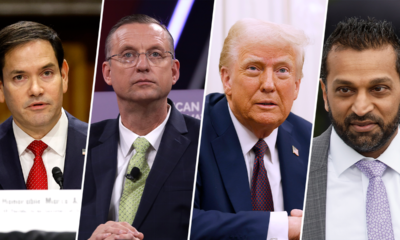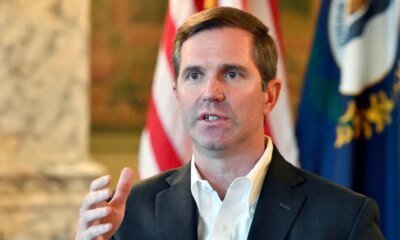INTERNACIONAL
Buttigieg says ‘right now I’m not running for anything’ during Iowa stop

CEDAR RAPIDS, IOWA – Pete Buttigieg pushed back against criticism from President Donald Trump on the job he did as transportation secretary in former President Biden’s administration and declined to say if Biden experienced cognitive decline during his final years in the White House, as he took questions from reporters on Tuesday night.
Buttigieg, speaking with reporters after headlining a town hall with veterans in this eastern Iowa city that sparked more speculation that the 2020 Democratic presidential contender is mulling another White House run in 2028, told Fox News that ‘right now I’m not running for anything.»
Buttigieg won the 2020 Iowa presidential caucuses and came in a close second in the New Hampshire presidential primary before Biden surged to claim the party’s nomination and later the White House.
While Iowa’s caucuses for half a century kicked off both major political parties’ presidential nominating calendars, the Democratic National Committee (DNC) demoted the Hawkeye State on their 2024 schedule, and it’s unclear if Iowa will regain its early state status in the 2028 calendar.
LESS THAN FOUR WEEKS INTO TRUMP’S SECOND TERM, DEMOCRATS ALREADY EYEING 2028 PRESIDENTIAL RACE
Former U.S. Transportation Secretary Pete Buttigieg headlines a veterans town hall in Cedar Rapids, Iowa, on May 13, 2025. Buttigieg’s appearance sparked speculation he may make another presidential run in 2028. (Fox News – Paul Steinhauser)
But Buttigieg’s visit, along with his announcement in March that he would pass on a 2026 run for a Democrat-controlled open Senate seat in battleground Michigan, his adopted home state, are seen as signals of his interest in a potential 2028 national run.
Buttigieg told a Substack author in a live interview hours before the town hall that when it comes to 2028, he would consider «what I bring to the table.»
But asked by Fox News if the trip to Iowa – where he also gathered with staffers from his 2020 campaign and was followed around by a videographer from his political group Win the Era – was the beginning of an assessment period, Buttigieg said «right now, I’m not running for anything and part of what’s exciting and compelling about an opportunity like this is to be campaigning for values and for ideas rather than a specific electoral campaign. So that’s what I’m about.»
Told that audience members who said they voted for him in 2020 and would be interested in backing him again if he runs in 2028, Buttigieg said «of course it means a lot to hear that people who supported me then continue to believe in what I have to say.»
The Cedar Rapids event was hosted by VoteVets, a progressive group that represents veterans and military families in the political process. The group told Fox News that 1,800 people attended the event.
WATCH: TRUMP TRANSPORTATION SECRETARY LAYS OUT NEW PLAN TO UPGRADE AGING AIR TRAFFIC CONTROL SYSTEM
The trip by Buttigieg came as he’s faced incoming fire in recent days from Trump and Transportation Secretary Sean Duffy over a surge in flight delays and cancellations at New Jersey’s Newark Liberty International Airport, which is one of the three major airports that services the New York City metropolitan area.
Duffy blames his predecessor at the Department of Transportation and the Biden administration for what he claims was a failure to upgrade the busy airport’s air traffic control system.
And Trump, last week, also chimed in, claiming that during his tenure as transportation secretary Buttigieg «didn’t have a clue. And this guy is actually a contender for president?» Trump added. «I don’t think he’s going to do too well.»
The president’s jabs came a few days after Buttigieg, pointing to Trump’s underwater approval ratings in national polling, said in a social media post that «Donald Trump is the most unpopular 100-day-mark president in modern American history.»
WATCH: TRUMP TRANSPORTATION SECRETARY LAYS OUT NEW PLAN TO UPGRADE AGING AIR TRAFFIC CONTROL SYSTEM
The Trump administration argues that Buttigieg oversaw a rocky transition of the Newark airport’s airspace to the Philadelphia Terminal Radar Approach Control (Tracon) last July.
And Duffy, who earlier this week unveiled a major plan to overhaul the nation’s aging air traffic control system, claims the Biden administration is to blame for the recent problems, including air traffic control equipment outages.
«Maybe when you work from home, or maybe when you work from Michigan as a secretary, maybe you’re not focused on the real issues that are taking place throughout the airspace,» Duffy said, as he took aim at Buttigieg, who lives in Michigan.
Buttigieg, responding, told reporters on Tuesday night that «when you’re the secretary of transportation, you have a tough job and your responsibility is to fix tough problems. You don’t have time to indulge in trying to point fingers or blame other people.»
«What I can tell you is we inherited a shrinking air traffic control workforce. We turned it into a growing air traffic control workforce,» he added. «My successor is, of course, not asking for my advice, but my advice would be to making sure that it grows and actually delivering the technological change that’s needed.»
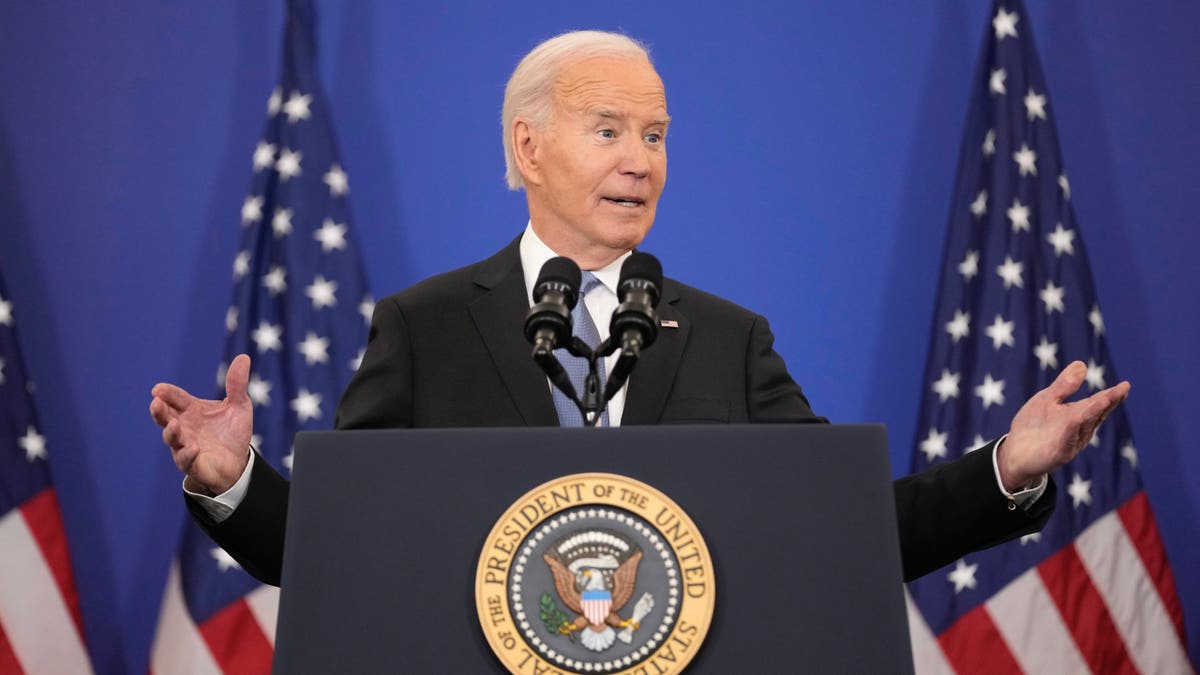
Then-President Joe Biden speaks at the State Department, during the closing days of his presidency, on Jan. 13, 2025. (AP)
Buttigieg’s Iowa trip also came on the same day that excerpts from a new book offered details on Biden’s supposed mental and physical decline during his last two years in the White House.
Asked whether Biden experienced cognitive decline, Buttigieg would only say that «every time I needed something from him from the West Wing, I got it.»
CLICK HERE TO GET THE FOX NEWS APP
But he said «maybe» when asked whether the Democratic Party would have been better off if Biden had not run for re-election in 2024. «Right now with the benefit of hindsight, I think most people would agree that that’s the case.»
Biden dropped out of the race last July, one month after a disastrous debate performance with Trump sparked a chorus of calls from fellow Democrats for the then-81-year-old president to end his re-election bid. He was replaced at the top of the ticket by then-Vice President Kamala Harris, who ended up losing in November to Trump.
Politics,Donald Trump,Pete Buttigieg,Elections,Iowa,Transportation
INTERNACIONAL
Trump’s NIH director isn’t the only official wearing multiple hats during the president’s second term
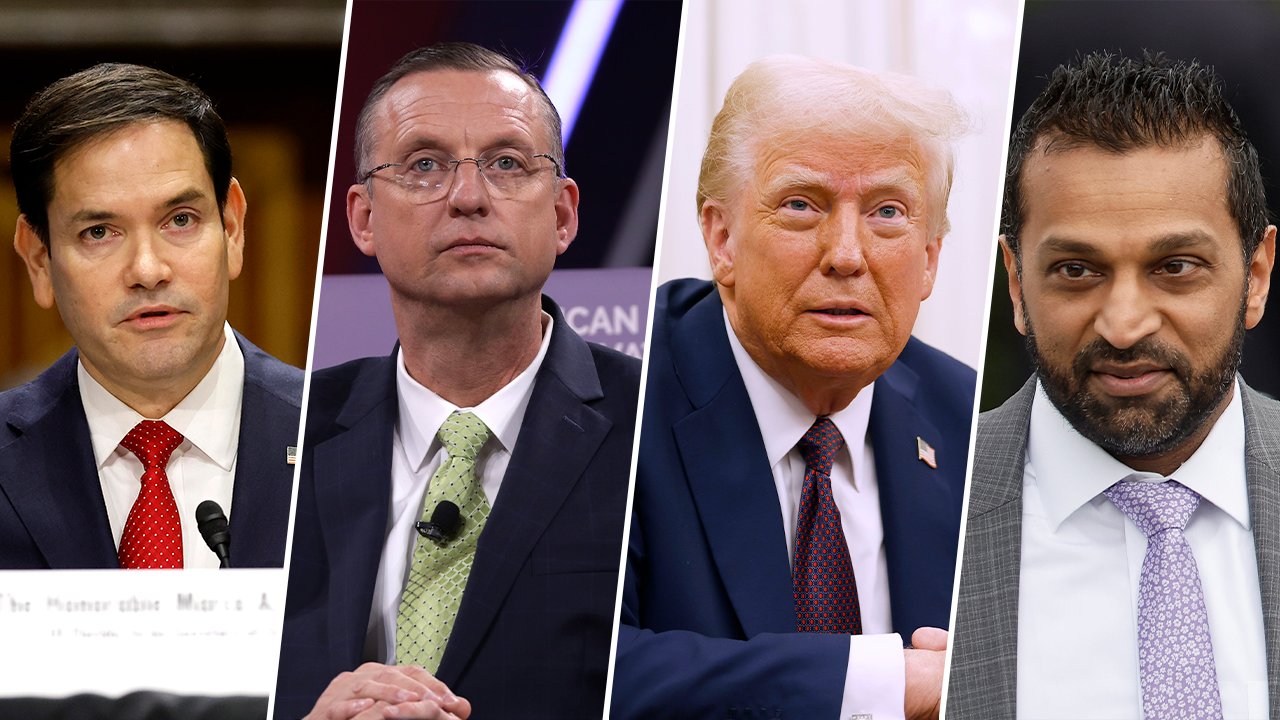
NEWYou can now listen to Fox News articles!
The Trump administration has repeatedly assigned additional job roles to Cabinet members and other officials, and one of his top health officials is the latest to begin pulling double duty for the president.
On Wednesday, National Institutes of Health (NIH) Director Jay Bhattacharya became the latest Trump official assigned an additional role. The NIH chief and staunch COVID contrarian will temporarily run the Centers for Disease Control and Prevention (CDC) until a new permanent director is appointed by President Donald Trump and subsequently confirmed by the Senate, while continuing to lead the NIH.
Bhattacharya’s move to the CDC followed the departure of Jim O’Neill, who was also deputy secretary of the Health and Human Services Department amid a broader restructuring of the Trump administration’s public health agencies. O’Neill is now reportedly expected to lead the National Science Foundation.
Fox News Digital looked back on the various Trump Cabinet members and officials wearing multiple hats as the president adjusts during the second year of his second term.
TRUMP TOUTS ‘MOST SUCCESSFUL’ FIRST 100 DAYS IN PRESIDENTIAL HISTORY DURING MICHIGAN RALLY
Secretary of State Marco Rubio, Secretary of the VA Doug Collins, President Donald Trump and FBI Director Kash Patel. (Getty Images)
Dr. Jay Bhattacharya
A physician, former Stanford professor of medicine and senior fellow at the university’s Institute for Economic Policy Research, Bhattacharya was a leading voice during the COVID-19 pandemic against lockdown measures and vaccine mandates.
He was one of the co-authors of the Great Barrington Declaration, a document published in October 2020 by a group of scientists advocating against widespread COVID lockdowns and promoting the efficacy of natural immunity for low-risk individuals as opposed to vaccination.
During Bhattacharya’s tenure, he has been forced to defend certain funding cuts tied to academic research and staffing. One of the core components Bhattacharya indicated that he wanted to pursue after his confirmation was to usher in a new age of «gold standard science.»
«I think fundamentally what matters is do scientists have an idea that advances the scientific field they’re in?» Bhattacharya said during his March confirmation testimony. «Do they have an idea that ends up addressing the health needs of Americans?»

Dr. Jay Bhattacharya will lead both the National Institutes of Health and the Centers for Disease Control and Prevention. (Getty Images)
Marco Rubio
Rubio and the Trump administration came under fire from Democrats for the secretary of state holding as many as four high-profile roles during the second Trump administration. As of today, he remains in two of those roles.
He was first confirmed as secretary of state hours after Trump was inaugurated, a role Rubio remains in today.
About a month later, amid a massive reorganization at the U.S. Administration for International Development (USAID), Rubio was named director and held that role until handing it off a few months later.
Around the same time, Rubio was tapped to be the acting archivist of the United States (NARA), a role he stopped serving in earlier this month.
Rubio does still serve as the interim national security advisor, a role he has held since May after the departure of Michael Waltz.
«There’s no way he can do that and do it well, especially since there’s such incompetence over at DOD with Pete Hegseth being secretary of defense and just the hollowing out of the top leadership,» Illinois Democratic Sen. Tammy Duckworth said of Rubio’s multiple jobs. «There’s no way he can carry all that entire load on his own.»
CRITICS WARNED TRUMP’S DEPORTATIONS WOULD SPARK BLOODSHED – PROGRESSIVE GROUP REPORTS POLICE KILLINGS FELL
«I don’t know how anybody could do these two big jobs,» Democratic Virginia Sen. Mark Warner added.
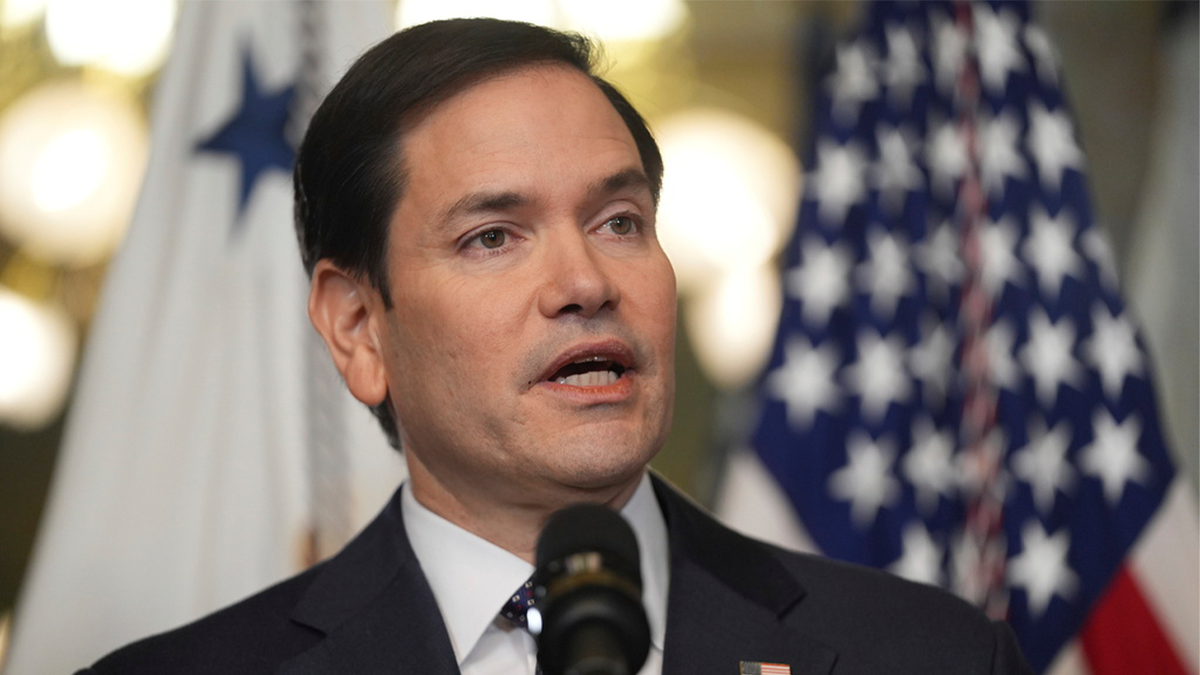
Secretary of State Marco Rubio serves in four different roles with the administration. (Evan Vucci/Associated Press)
When asked about the trend of Trump officials wearing multiple work hats in May, the White House reflected in a comment to Fox News Digital on former President Joe Biden’s «disaster of a Cabinet.»
«Democrats cheered on Joe Biden’s disaster of a Cabinet as it launched the botched Afghanistan withdrawal, opened the southern border to migrant criminals, weaponized the justice system against political opponents and more,» White House spokesperson Anna Kelly told Fox News Digital in May.
«President Trump has filled his administration with many qualified, talented individuals he trusts to manage many responsibilities.»
The Trump administration has repeatedly brushed off concerns over Rubio holding multiple roles, most notably juggling both his State Department leadership and serving as acting national security advisor. Similarly, former President Richard Nixon in 1973 named National Security Advisor Henry Kissinger to simultaneously serve as Secretary of State.
TRUMP NOMINATES WALTZ FOR HIGH-LEVEL POST AFTER OUSTING HIM AS NATIONAL SECURITY ADVISOR
«You need a team player who is very honest with the president and the senior team, not someone trying to build an empire or wield a knife or drive their own agenda,» an administration official told Politico. «He is singularly focused on delivering the president’s agenda.»
Despite Democratic rhetoric that Rubio was taking on too many roles, the former Florida senator helped oversee successful U.S. strikes on Iran in June, which destroyed a trio of nuclear sites and decimated the country’s efforts to advance its nuclear program.
Kash Patel
FBI Director Kash Patel, who railed against the «deep state» and vowed to strip corruption from the federal law enforcement agency ahead of his confirmation, was briefly charged with overseeing the Bureau of Alcohol, Tobacco, Firearms and Explosives (ATF) in February after the Biden-era director resigned in January 2025.
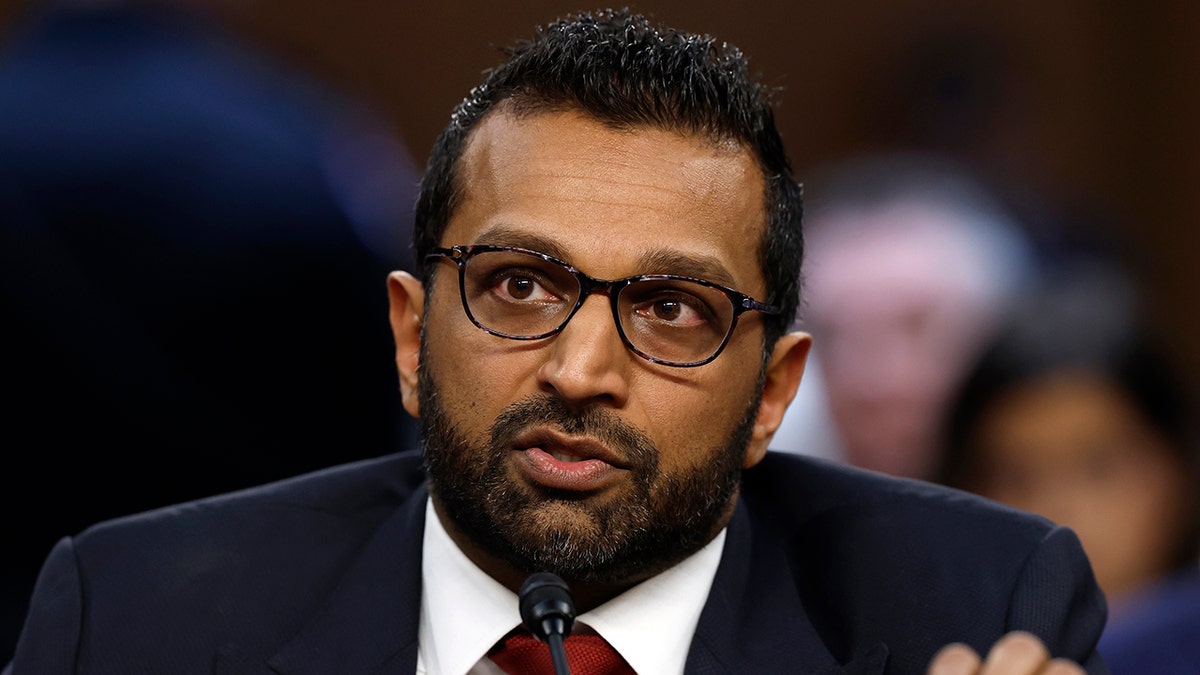
Kash Patel briefly served as acting director of the ATF and FBI director. (Anna Moneymaker/Getty Images)
Patel was later replaced by Secretary of the Army Daniel Driscoll as acting ATF director in a job change that was reported publicly in April.
ARMY SECRETARY DAN DRISCOLL TO LEAD ATF, REPLACING FBI DIRECTOR KASH PATEL
«Director Kash Patel was briefly designated ATF director while awaiting Senate confirmations, a standard, short-term move. Dozens of similar redesignations have occurred across the federal government,» the White House told Reuters in April. «Director Patel is now excelling in his role at the FBI and delivering outstanding results.»
Sean Duffy
Duffy, a former Republican congressman from Wisconsin, was tapped to oversee the Department of Transportation and was confirmed by the Senate Jan. 28. Duffy has been forced to juggle a handful of crises related to tragic plane crashes, including the 2025 Potomac River midair collision and air traffic control issues that plagued New Jersey’s Liberty International Airport last year.
In July, President Trump announced Duffy would also serve as interim chief of NASA. Duffy remained in that position until mid-December, when commercial astronaut Jared Isaacman took over.
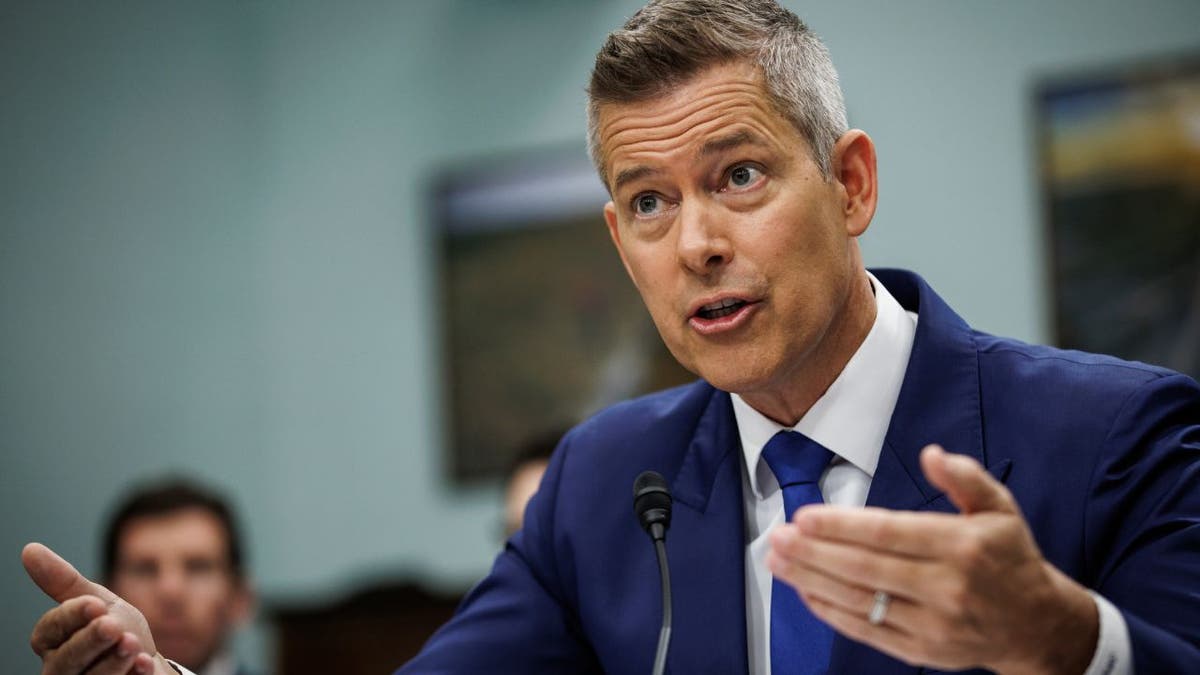
Trump tapped Secretary of Transportation Sean Duffy to temporarily lead NASA. (Samuel Corum/Getty Images)
Prior to Trump’s inauguration in January 2025, the president announced he would be nominating Isaacman but withdrew his nomination in May before the full Senate confirmed him. Trump said the decision followed a review of Isaacman’s «prior associations,» pointing to money he has given to Democrats.
However, Isaacman suggested at the time that the rescission of his nomination may have been due to his connections to Elon Musk, who was running the Department of Government Efficiency (DOGE) at the time.
Duffy replaced Janet Petro, who had served as acting NASA administrator since Trump’s inauguration.
Daniel Driscoll
Driscoll was sworn in as the 26th secretary of the Army in February. The secretary of the army is a senior-level civilian official charged with overseeing the management of the Army and also acts as an advisor to the secretary of defense in matters related to the Army.
It was reported in April that Driscoll was named acting ATF director, replacing Patel in that role.
NEW ARMY SECRETARY PRAISES TRUMP, HEGSETH FOR CREATING ‘A LANE FOR CHANGE’ AS HE ZEROES IN ON CUTTING WASTE
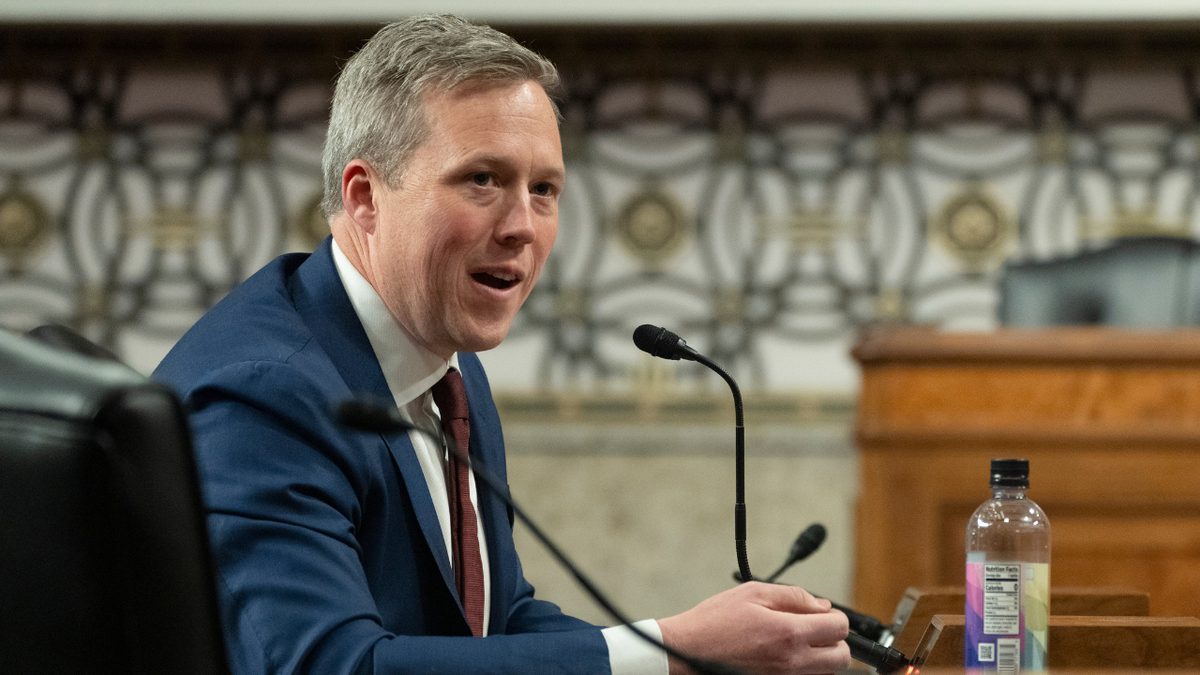
Daniel Driscoll is the 26th secretary of the U.S. Army. (Manuel Balce Ceneta/Associated Press)
«Mr. Driscoll is responsible for the oversight of the agency’s mission to protect communities from violent criminals, criminal organizations, and the illegal trafficking of firearms, explosives, and contraband,» his ATF biography states. «Under his leadership, the ATF works to enforce federal laws, ensure public safety, and provide critical support in the investigation of firearms-related crimes and domestic and international criminal enterprises,»
Ahead of Trump taking office, Republican representatives Eric Burlison of Missouri and Lauren Boebert of Colorado introduced legislation to abolish the ATF, saying the agency has worked to strip Second Amendment rights from U.S. citizens.
The ATF has been tasked with assisting the Department of Homeland Security in its deportation efforts under the Trump administration.
Driscoll remains listed as the agency’s acting director as of February 2026.
Doug Collins
Former Georgia Republican Rep. Doug Collins was sworn in as the Trump administration’s secretary of Veterans Affairs in February, a Cabinet-level position tasked with overseeing the department and its mission of providing health, education and financial benefits to military veterans.
Days after his confirmation as VA secretary, Trump tapped Collins to temporarily lead two oversight agencies, the Office of Government Ethics and the Office of Special Counsel.
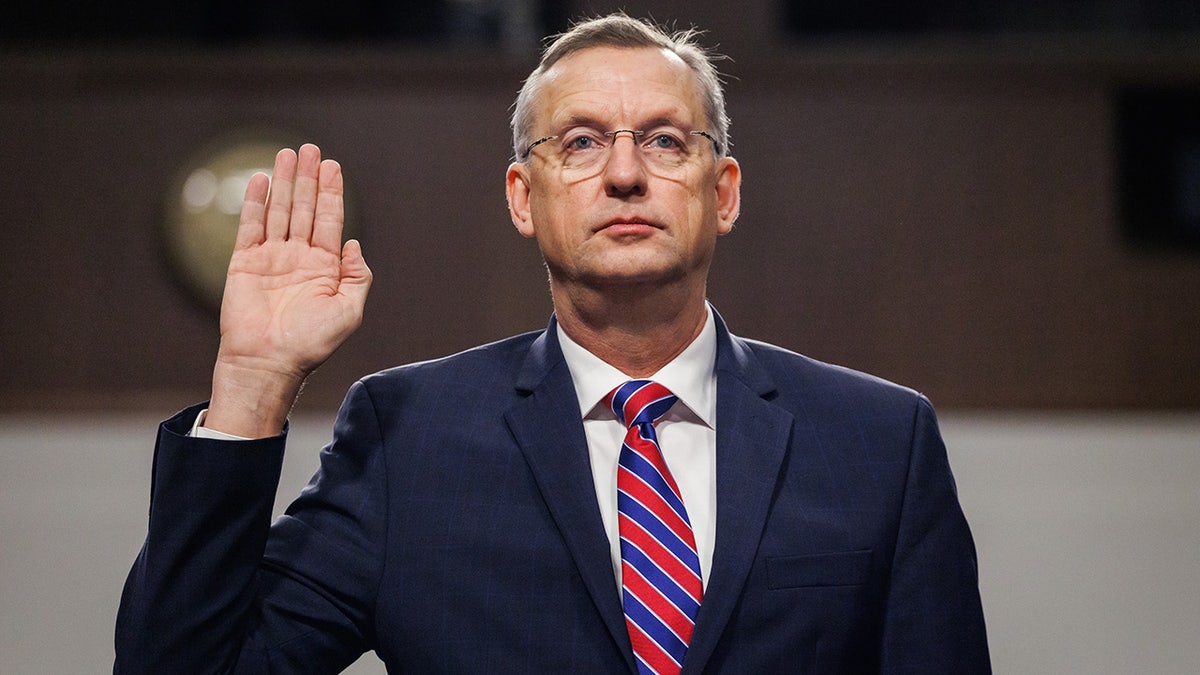
Former Georgia Republican Rep. Doug Collins was sworn in as the Trump administration’s secretary of Veterans Affairs in February. (Samuel Corum/Getty Images)
VA SECRETARY ACCUSES REPORTER OF SPREADING ‘RUMORS’ ABOUT DOGE THAT HURT VETERANS IN TENSE CLASH
The Office of Government Ethics is charged with overseeing the executive branch’s ethics program, including setting ethics standards for the government and monitoring ethics compliance across federal agencies and departments.
The Office of Special Counsel is charged with overseeing and protecting the federal government’s merit system, most notably ensuring federal whistleblowers don’t face retaliation for sounding the alarm on an issue they’ve experienced. The office also has an established secure channel to allow federal employees to blow the whistle on alleged wrongdoing.
The Office of Special Counsel also enforces the Hatch Act, which bans executive branch staffers, except the president and vice president, from engaging in certain forms of political activity.
Jamieson Greer
Trump’s trade representative, Jamieson Greer, has also been tapped for multiple roles within the administration, in addition to helping lead the administration’s tariff negotiations to bring parity to the chronic U.S. trade deficit with other nations.
Greer took on Collins’ roles as acting director of the Office of Government Ethics and as acting special counsel of the Office of Special Counsel April 1.
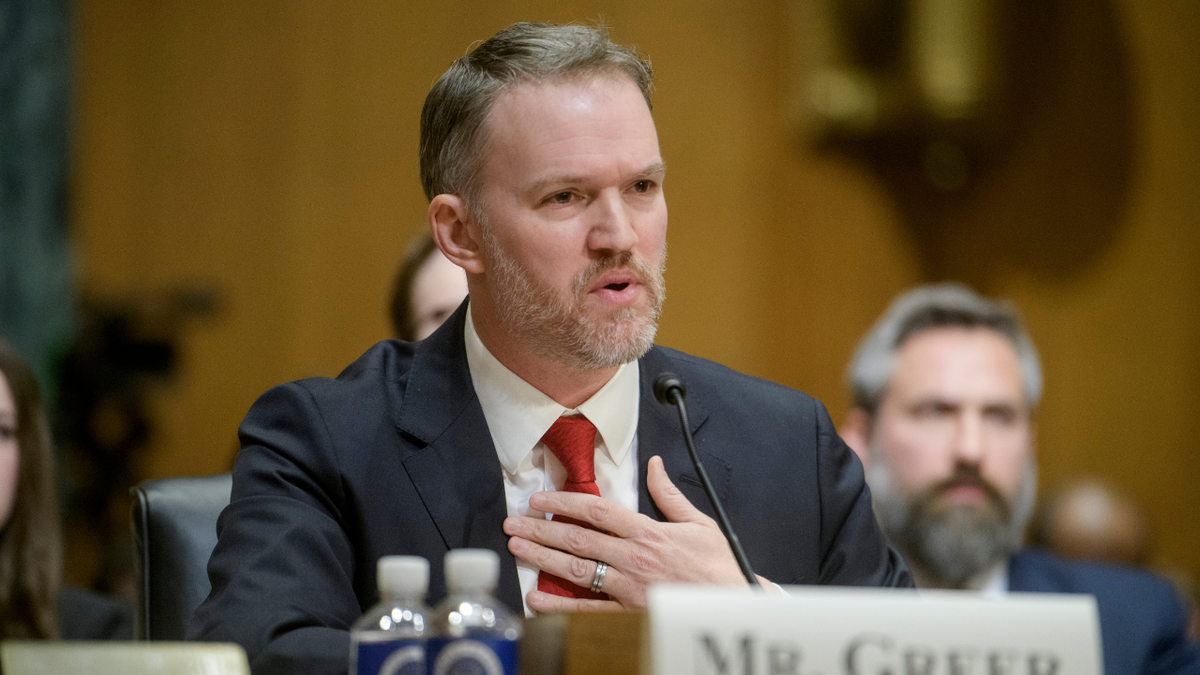
Jamieson Greer serves as President Trump’s trade representative in addition to other interim roles. (Rod Lamkey, Jr./The Associated Press)
Trump nominated conservative attorney Paul Ingrassia to lead the Office of Special Counsel in May, but he subsequently withdrew his nomination amid concerns about his rhetoric and other accusations the young conservative was facing at the time.
Russell Vought
Trump named his former director of the Office of Management and Budget during his first administration, Russell Vought, to the same role in his second administration. Vought was confirmed as the federal government’s budget chief in February.
Days later, Vought was also named the acting director of the Consumer Financial Protection Bureau (CFPB), a position he still holds.
RUSS VOUGHT, TAPPED AS CFPB’S ACTING DIRECTOR, DIRECTS BUREAU TO ISSUE NO NEW RULES, STOP NEW INVESTIGATIONS
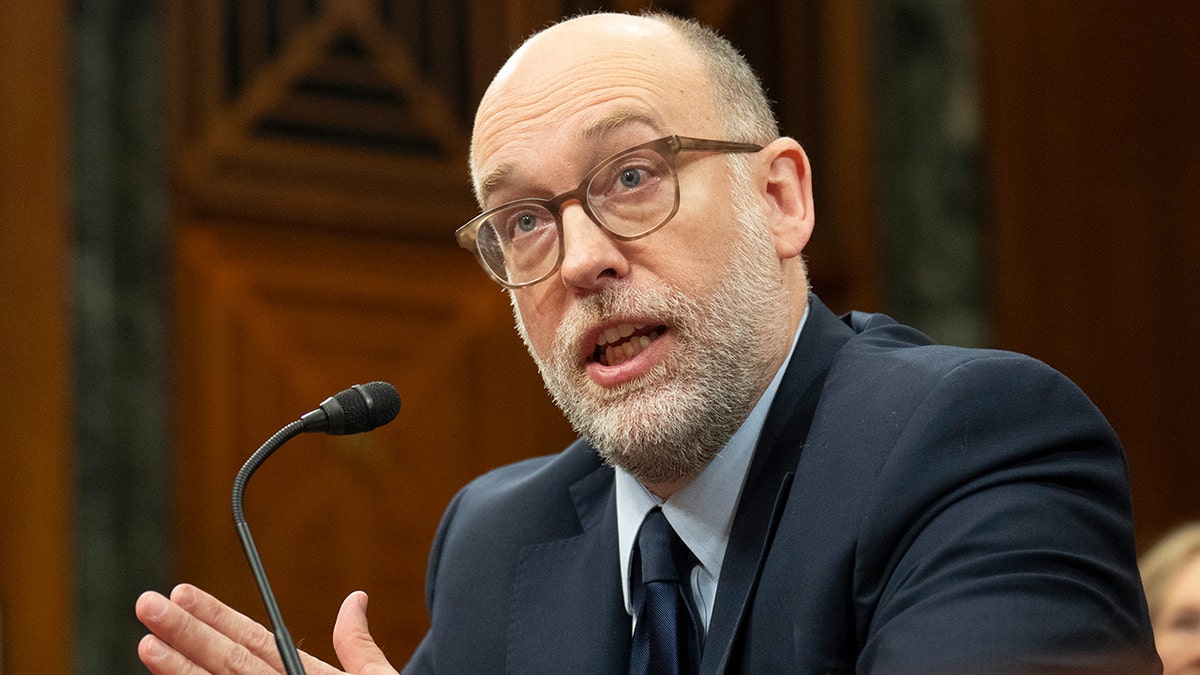
Russell Vought serves as director of the Office of Management and Budget. (Jacquelyn Martin/AP)
The CFPB is an independent government agency charged with protecting consumers from unfair financial practices in the private sector. It was created in 2010 under the Obama administration after the financial crash in 2008. Democratic Massachusetts Sen. Elizabeth Warren originally proposed and advocated for the creation of the agency.
The CFPB came under fierce investigation from the Department of Government Efficiency in February, with mass terminations rocking the agency before the reduction in force initiative was tied up in court.
Ric Grenell
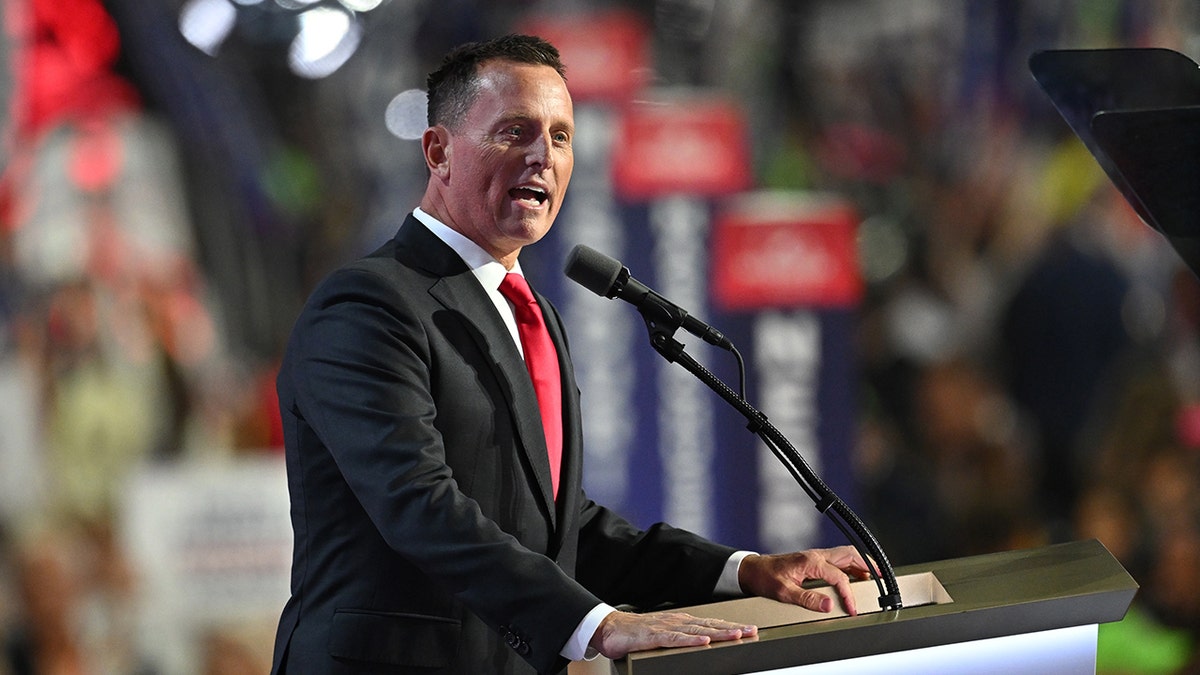
Kennedy Center President Ric Grenell also serves as special presidential envoy for special missions of the United States. (Leon Neal/Getty Images)
President Donald Trump’s former ambassador to Germany and acting director of national intelligence during his first term, a pair of roles held at separate times in the first administration, currently serves as president of the Kennedy Center and special presidential envoy for special missions of the United States.
GRENELL DEVELOPING ‘COMMONSENSE’ PLAN TO TURN KENNEDY CENTER FINANCIALS AROUND
The John F. Kennedy Center for the Performing Arts serves as the national cultural center of the U.S. Trump notably serves as the center’s chairman, and Grenell said the center will see a «golden age» of the arts during Trump’s second administration through productions and concerts that Americans actually want to see after years of the performing arts center running in the red.
Trump named Grenell his special presidential envoy for special missions to the United States in December 2024 before his inauguration, saying Grenell will «work in some of the hottest spots around the world, including Venezuela and North Korea.»
CLICK HERE TO GET THE FOX NEWS APP
In this role, Grenell helped lead the administration through its response to the wildfires that tore through Southern California in the last days of the Biden administration through the beginning days of the Trump administration.
Fox News Digital’s Jasmine Baehr contributed to this report.
donald trump,white house,fbi,executive,politics,coronavirus
INTERNACIONAL
Gran Bretaña no permitirá que Estados Unidos utilice la isla Diego García para un eventual ataque a Irán
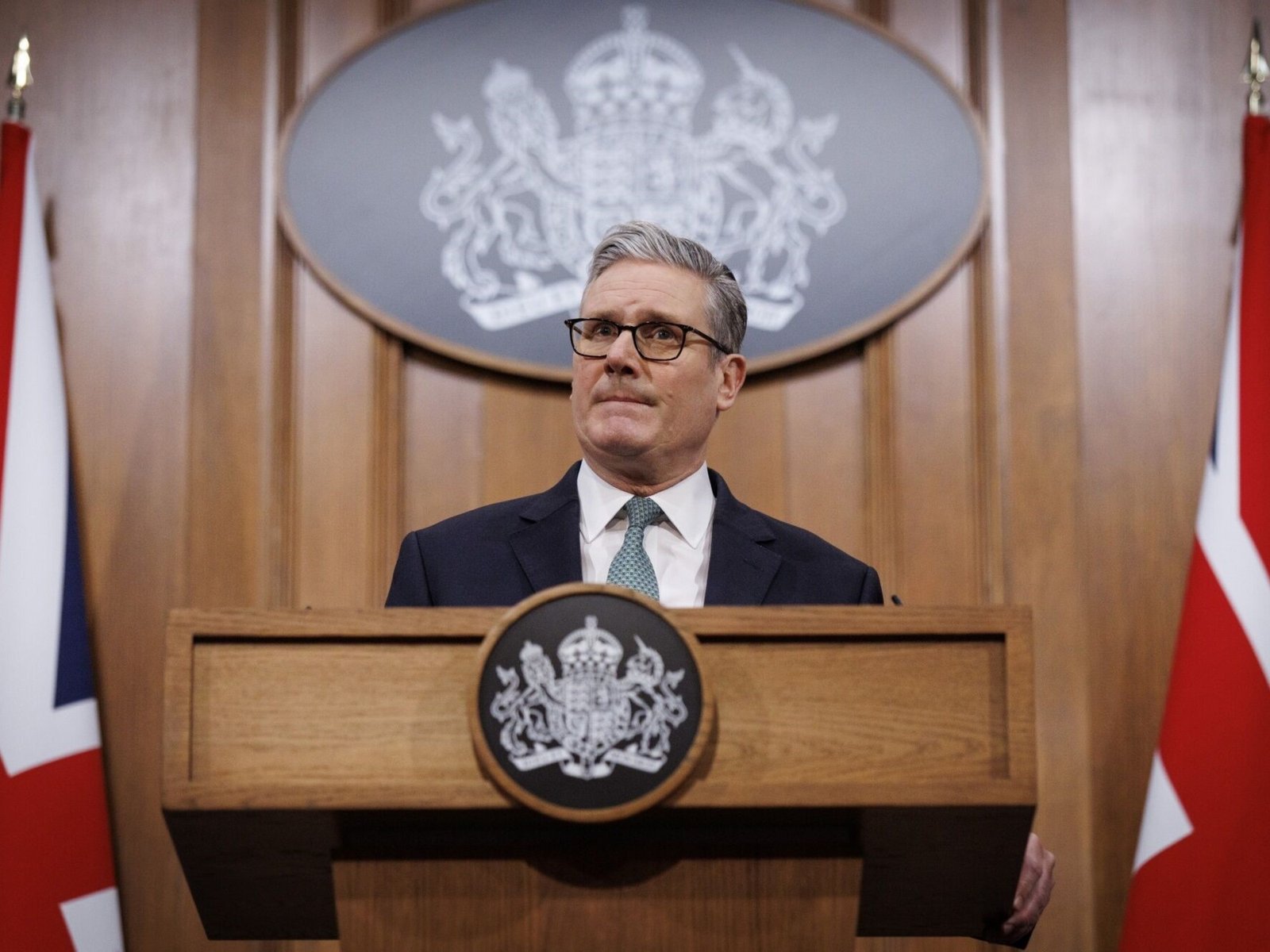
La ley del talión está en marcha en la diplomacia entre Estados Unidos y Gran Bretaña. Todo a causa de Groenlandia, la decisión del Reino Unido de defender su soberanía y ser parte de la misión que la OTAN envió al territorio que Donald Trump quiere anexar con negociaciones o por la fuerza. El presidente Trump ha retirado su apoyo al acuerdo del primer ministro Sir Keir Starmer para entregar las islas Chagos a Mauricio, ya que el Reino Unido no ha accedido a permitir el uso de bases británicas para atacar a Irán.
Trump proyecta atacar el sábado a Irán. Necesita la isla de Diego García, en el archipiélago de Chagos, para que despeguen sus aviones B52.
La Casa Blanca está elaborando planes militares detallados para un ataque contra Irán, que implica el uso de la base Diego García y la RAF Fairford en Gloucestershire, sede de la flota estadounidense de bombarderos pesados en Europa. Según los acuerdos de larga data con Washington, estas bases solo pueden utilizarse para operaciones militares previamente acordadas con el gobierno.
Reino Unido aún no ha autorizado a Estados Unidos a utilizar las bases en caso de que Trump ordene un ataque contra Irán, debido a la preocupación de que esto constituiría una violación del derecho internacional, el cual no distingue entre el Estado que lleva a cabo el ataque y quienes lo apoyan si estos últimos tienen «conocimiento de las circunstancias del acto internacionalmente ilícito».
El presidente Trump habló con el primer ministro Starmer el martes por la noche. Ambos conversaron sobre el ultimátum de Trump a Irán sobre su programa nuclear. Al día siguiente, Trump emitió su declaración criticando el acuerdo de Chagos.
En 2021, John Healey, el actual secretario de Defensa, solicitó en la Cámara de los Comunes una aclaración al entonces gobierno conservador sobre las normas básicas para el uso de bases británicas por parte de las fuerzas estadounidenses. Se le informó que una operación militar propuesta debería ajustarse a la legislación del Reino Unido y a la interpretación británica del derecho internacional pertinente.
La postura del Reino Unido sobre los ataques preventivos es bien conocida. Antes de la guerra de Irak, Lord Goldsmith, el entonces fiscal general, argumentó que el derecho internacional solo permitía el uso de la fuerza en defensa propia en caso de un ataque real o inminente. Goldsmith argumentó posteriormente que una resolución de la ONU relativa a Irak la convertía en una guerra legal.
En la declaración de Trump del miércoles por la noche, el presidente hizo una referencia explícita a Irán y al papel que el Reino Unido podría desempeñar en cualquier ataque. También pareció sugerir que el apoyo británico sería legal según el derecho internacional, ya que Irán podría potencialmente atacar al país europeo.
“Si Irán decide no llegar a un acuerdo, podría ser necesario que Estados Unidos utilice Diego García y el aeródromo ubicado en Fairford para erradicar un posible ataque de un régimen altamente inestable y peligroso”, escribió en su sitio web Truth Social. “Un ataque que potencialmente se lanzaría contra el Reino Unido, así como contra otros países amigos”, precisó Trump.
Luego añadió: “Siempre estaremos listos, dispuestos y capaces de luchar por el Reino Unido. Pero deben mantenerse firmes frente al wokeismo y otros problemas que se les presenten”.
El gobierno ha insistido repetidamente en que un acuerdo de cesión con Mauricio, que se espera cueste al contribuyente 35.000 millones de libras, es necesario por razones de seguridad y evitaría una costosa batalla legal por el territorio.
En declaraciones realizadas hoy, Alex Davies-Jones, ministra de Víctimas, insistió en que el primer ministro cumpliría con el acuerdo y presentaría la legislación ante el parlamento lo antes posible.
Declaró a Times Radio: «Seguiremos trabajando con nuestros aliados, incluidos los estadounidenses, en esto. Pero, ante todo, la prioridad debe ser la seguridad nacional, y eso es lo que este gobierno está determinado a lograr».
«Hace apenas dos semanas respaldaron el acuerdo, y esta semana Estados Unidos también lo hizo. Seguiremos manteniendo conversaciones con los estadounidenses y otros aliados pero, como ya he dicho, la prioridad es nuestra base y la seguridad nacional».
Sin embargo, altos funcionarios del gobierno afirmaron en privado que el acuerdo no podía seguir adelante sin la aprobación estadounidense. Describieron la situación como «sombría».
INTERNACIONAL
Iran covertly repositions strike drones amid Russia drills in Strait of Hormuz, expert says

NEWYou can now listen to Fox News articles!
Iran repositioned strike drones and other military assets under the cover of joint drills with Russia in the Strait of Hormuz Thursday, a defense expert claimed.
In what he described as a «calculated escalation» amid rising tensions with the U.S., Cameron Chell said Iran’s latest move also followed reports of sightings of U.S. MQ-9 Reaper drones with precision strike capabilities in the region.
«The Russian drills would cover for the Iranian forces to move their drones into strike position,» Chell, of defense firm Draganfly, told Fox News Digital. «They’ve gone under the veil of doing the military exercises, which happened to be along the coastline, and this is an escalation.»
UK BLOCKS TRUMP FROM USING RAF AIR BASES FOR POTENTIAL IRAN ATTACK: REPORT
Defense expert Cameron Chell has called Iran’s military moves with Russia a «calculated escalation.» (Iranian Army/Handout/Anadolu via Getty Images)
The combined exercises, reported by The Associated Press, also came as President Donald Trump pressed Iran further to make a deal to give up its nuclear weapons ambitions following indirect talks in Geneva.
«We’re going to make a deal, or we’re going to get a deal one way or the other,» Trump told reporters aboard Air Force One on Thursday, signaling determination to secure an agreement.
MORNING GLORY: WHAT WILL PRESIDENT DONALD TRUMP DECIDE TO DO WITH IRAN?

Iran’s latest moves reportedly follow sightings of U.S. MQ-9 Reaper drones. (John Moore/Getty Images)
Meanwhile, on Feb. 18, U.S. Central Command posted photos showing F/A-18 Super Hornets landing on the decks of the USS Abraham Lincoln in the Arabian Sea.
Flight-tracking data in recent days also showed U.S. Navy MQ-4C Triton surveillance drones operating near Iran’s coastline.
One Triton was observed Feb. 14 and another on Feb. 18, conducting high-altitude maritime intelligence missions over the Gulf.
«The U.S. deployed an MQ Triton drone, which is a surveillance drone, so it does not have strike capability, and it typically flies at around 50,000 feet,» Chell said.
He added the drones would likely launch from land bases in countries such as Saudi Arabia or Qatar and provide real-time situational awareness to naval commanders.
TRUMP’S SPECIAL ENVOY WITKOFF AND KUSHNER VISIT US AIRCRAFT CARRIER AMID IRAN TENSIONS, TALKS

«The Russian drills would cover for the Iranian forces to move their drones into strike position,» Chell told Fox News Digital. (Iranian Army/Handout/Anadolu via Getty Images)
«These drones can guide the U.S. on Iranian forces performing exercises with the Russians and where they might be moving equipment to,» Chell said before describing how they fly them «at an altitude so that the Iranians can see it so they become a deterrent.»
Chell also said an MQ-9 Reaper drone was deployed, which he said can fly between 25,000 and 40,000 feet.
«This has strike capability, but Iranians do not have great capability to take these down,» he added.
As previously reported by Fox News Digital, the USS Gerald R. Ford, the second aircraft carrier Trump has sent to the Middle East, and its accompanying ships are heading across the Atlantic Ocean into the Mediterranean Sea.
CLICK HERE TO DOWNLOAD THE FOX NEWS APP
NATO country and U.S. ally Poland also warned its citizens Thursday to immediately flee Iran, with its prime minister saying the «possibility of a conflict is very real.»
iran,middle east,military,us navy,donald trump,ali khamenei

 POLITICA2 días ago
POLITICA2 días agoReforma laboral bomba: menos indemnización, más horas y despidos más fáciles — el cambio que puede sacudir el empleo en Argentina

 POLITICA2 días ago
POLITICA2 días agoEl Gobierno endurece las medidas de seguridad y control en la marcha prevista contra la reforma laboral en el Congreso

 INTERNACIONAL3 días ago
INTERNACIONAL3 días agoHouse Dem’s graphic chicken decapitation ‘horrified’ her college roommates: ‘Blood went everywhere’

